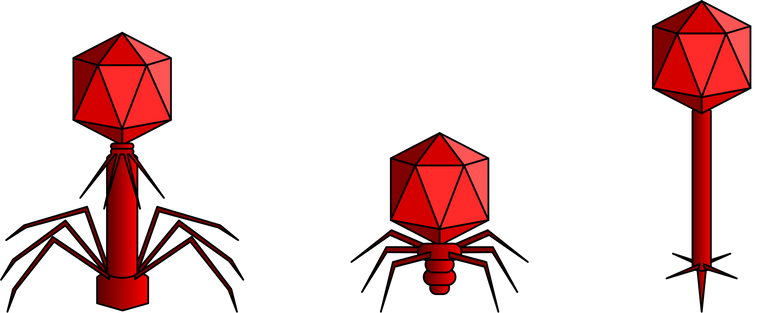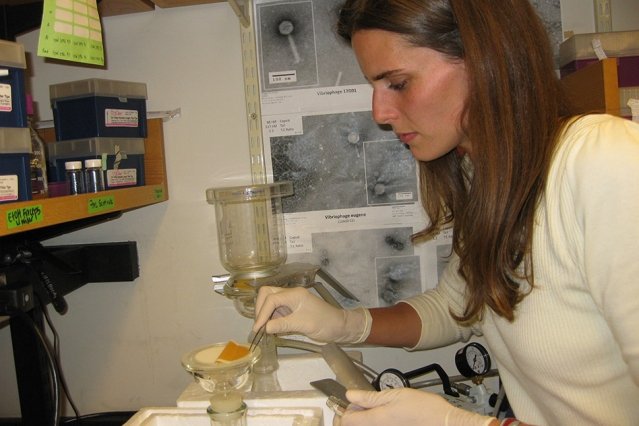Bacteria are a tough enemy for us humans. There is so many of them, they are very very small, they multiply at an incredible rate and they can adapt as fast as reproduce. But even bacteria have their nemesis. An enemy who is even more numerous, smaller and faster in reproducing and adapting. These enemies are viruses. That makes many viruses as interesting ally for us.

Phages with flagella - Source: Wikimedia Commons
Kathryn Kauffman from the Massachusetts Institute of Technology (MIT) and her coworkers have recently isolated and made research on a completely unknown group of viruses that prey on bacteria. It seems that these viruses are an important group in the virus evolution history and also an important ecological role in the regulation of bacterial population. Their research was published in the Nature magazine.
From what we know about viruses so far, the most numerous are double-stranded DNA (dsDNA) viruses. In samples collected in many different places around the world, we often see dsDNA viruses from the Caudovirales group that have a capsid with flagella and are one of the classic bacteriophages. But in seawater DNA viruses that have a capsid without flagella are more numerous.

Kathryn Kauffman - Source: Alison Takemura / MIT.
Exactly this type of viruses is now being researched by the Kauffman’s team. And they found quite the surprise. They found a completely unknown group of dsDNA viruses with quite incredible properties. The first interesting thing is the fact that their genomes are quite small, only about 10 kilobases. The typical dsDNA phages with flagella have genomes with about 40 – 50 kilobases. Phages with flagella are also quite picky and only kill a few bacterial hosts. The newly discovered viruses are much less picky. It also seems that these new viruses kill their prey very slowly. That’s why nobody noticed them until now. Kaufman and her colleagues acknowledged that these viruses were hiding from them for some time and decided to name the group Autolykiviridae based on characters from Greek mythology. Autolykos has the son of Hermes. He was a thief and cheater, considered one of the most cunning Greeks.
When the researchers read the genomes of the Autolykiviridae they also look into databases to see if they will find the gene sequences somewhere else as well. And obviously did, in many places in the world. The people who discovered them believe are convinced that these viruses may be very common. They could play a key role in global chemical cycles, like for example carbon.
Sources:
Being A SteemStem Member
Thank You for sharing.!
Vaya que si. Son nuestros principales enemigos.
Hello from @sjob
Thank you for sharing the research findings. According to the researchers, it has practical importance as it helps "in a major ecological role in the ocean, being responsible for a substantial fraction of bacteria-killing.”
http://news.mit.edu/2018/new-type-virus-found-ocean-0124